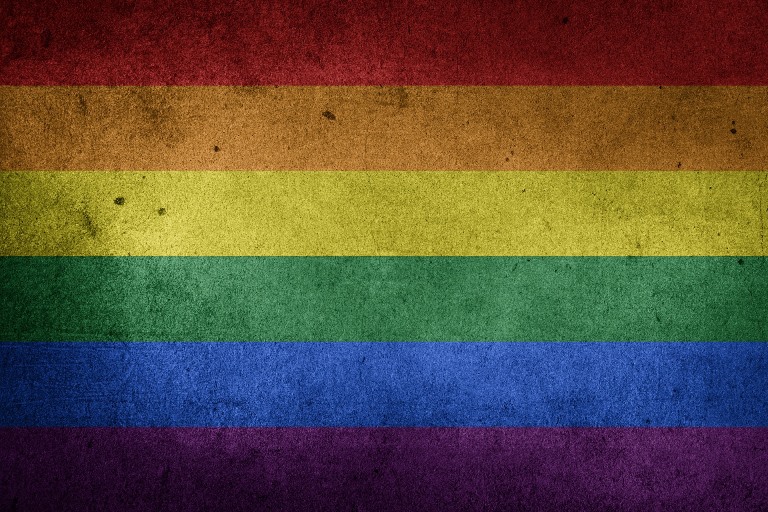This post was contributed by Antu Sorainen, research fellow at the Birkbeck Institute for Social Research
“Inheritance is a social and legal practice of profound significance. For many people, having control over what happens to property after death is both socially important and legally valuable.”
* Rosie Harding (2015).
 What does the inheritance system mean for queer people?
What does the inheritance system mean for queer people?
To provide novel empirical data to shed light on this question, I prepared a survey on queer will-writing and inheritance practices while visiting the Birkbeck Law School and the Birkbeck Institute for Social Research in November-December 2015. The 6-lingual online survey closed at the end of January 2016. The number of respondents was surprisingly high: 1007, instead of the excepted 200. The analysis of the survey results will be combined with 120 semi-structured interviews from the UK, Russia, Sweden, Finland, Romania and Hungary.
The analysis of the survey data and the 40 research interviews collected so far has just started. The initial findings suggest that friends often provide more support than relatives for queer people in life crises, such as ageing, divorce, unemployment, and housing or financial problems. It also seems obvious that queer families and relationships do not always fit in the rather narrow model of kinship presented in inheritance legislation in different countries.
A rich source of evidence about kinship
Many of the interviewees feel like Olli, a retired Finnish gay man:
“I had a gay friend who died of AIDS-related diseases and was hospitalized for several years. He would have probably suffered more if not for the circle of gay friends who took care of his practical matters, and visited him weekly to entertain and feed him in different institutions. It is our duty and also pleasure to help those members of the gay community who are dependent and willing to accept our help. We came as the supplement for the relatives who not able to provide the support he needed.”
Olli has written a joint will with his civil union partner to secure the surviving partner’s financial situation and ensure it is possible to hire care-givers during the final part of life. However, not all intimate or caring queer relations automatically turn into queer wills.
The British socio-legal researcher Sue Westwood (2015) has shown that a wide range of kinship formations and compositions – both connections and disconnections – complicate the ties of love and affection and disposal of assets in wills.
“I suggest that wills can sometimes be a rich source of evidence about kinship, but only when analysis takes into account the complexities and contingencies which can be involved”, she argues.
Top findings of the study
It is possible to suggest three things based on the initial findings of the survey and interview data.
- First, queer people’s experiences about the inheritance system vary considerably from one country to another. North-European countries have different legal systems, such as the “testamentary freedom” UK and the “legal share” Finland. There are also extra-legal cultural differences that may influence will-writing. For example, godchildren may open up the queer inheritance debate in other ways in the UK (see Monk 2015) than in the secular Nordic countries where godparents do not figure very strongly.
- Secondly, the inheritance system and laws, based on a relatively narrow cultural model of marriage and inter-generational succession does not always fit the life courses and relationship models of people belonging to sexually marginalized groups. For example, in Finland, many children in rainbow families are currently in an unequal position with regards to inheritance, as the co-mother is categorized as an “other” in the inheritance taxation.
- Thirdly, some queer people, like Olli, would like the inheritance taxation system to support also activist post-life donations: “With the help of testamentary funds, we could, for example, establish pop up publishing houses that would publish such manuscripts that do not find forums elsewhere.”
When to write a will?
 The Norwegian gay solicitor Halvor Frihagen strongly advices LGBTQ-people to write queer wills at a young age: “It is important to have thought through and talked about things while still friends. People do not think so much about death when one is young and healthy.” He points out that also same-sex couples should talk about who gets what if the relationship ends or one of the partners will suddenly die. (Nordvåg 2016.)
The Norwegian gay solicitor Halvor Frihagen strongly advices LGBTQ-people to write queer wills at a young age: “It is important to have thought through and talked about things while still friends. People do not think so much about death when one is young and healthy.” He points out that also same-sex couples should talk about who gets what if the relationship ends or one of the partners will suddenly die. (Nordvåg 2016.)
However, according to my survey data, many queer people are confused about the inheritance rules and taxation. What is more, most of the respondents in the sample have not written wills. One of the reasons for this can be a certain self-marginalisation and limited access to the legal advice, sometimes due to the bad experience with the members of the legal profession. For example, Inkeri, a 35year old queer woman, said in an interview that she would write a will would she “trust the straight lawyers to understand the specificities of queer relationships.”
The rule of blood kinship often replaces queer relations or care-givers in the passing of the LGBTQ wealth. Therefore, we have a reason to pose a serious question. In which ways lesbians, gays and other members of sexually marginalised groups as well as persons identifying as trans could get more and better information about the possibilities to arrange their inheritance, such as by writing a will or by other means?
Human life is about other people
But should we, as scholars, support the inheritance system by encouraging queer people to secure the old age of their rainbow friends, lovers and exes via queer wills? Doesn’t such a strategy strengthen the institution which so many of us in the critical troops would prefer to see abandoned and replaced by a more just system of wealth distribution?
My personal answer is this: why not to make a ‘queer use’ of the existing system while imagining more democratic forms that may have an altogether different outlook.
As Lynne Segal (2014) has pointed out, failing to “see any rainbow on the horizon, and knowing the brutal forces protecting every pot of gold, how do we nurture any hope for better times? Friends may die; political contexts change; creative challenges overwhelm us […] Human life is about other people, both the contexts and the ways in which they leave their mark on us.”
Find out more
References
Rosie Harding (2015). “The Rise of Statutory Wills and the Limits of Best Interests Decision-Making in Inheritance.” The Modern Law Review © 2015 The Modern Law Review Limited. (2015) 78(6) MLR945–970.
Daniel Monk (2015). Sexuality and children post-equality. In Robert Leckey (ed.): after Legal equality: Family, Sex, Kinship. New York: Routledge, 200-215.
Nordvåg, Hanne Bernhardsen (2016). “Advokatens råd: Skriv sameiekontrakt og testamente!”: https://www.gaysir.no/artikkel.cfm?cid=17163
Segal, Lynne (2014). Out of Time – The Pleasures & Perils of Ageing. London – New York, Verso.
Sorainen, Antu (2015a). Inheritance System and Care. http://revaluingcare.net/inheritance-system-and-care-part-2/
Sue Westwood: (2015) Complicating Kinship and Inheritance: Older Lesbians’ and Gay Men’s Will-Writing in England. Feminist Legal Studies. 23:181–197

 Our second survey shows a lot of uncertainty and variability in how LGBTQ+ people have experienced the pandemic and associated lockdowns or restrictions. Over half of those taking part said they’d had problems with well-being or mental health and many felt lonely and isolated. But other people had experienced positive gains especially in terms of online services and outreach activities had stepped up. You can read more about our results via the report on our website.
Our second survey shows a lot of uncertainty and variability in how LGBTQ+ people have experienced the pandemic and associated lockdowns or restrictions. Over half of those taking part said they’d had problems with well-being or mental health and many felt lonely and isolated. But other people had experienced positive gains especially in terms of online services and outreach activities had stepped up. You can read more about our results via the report on our website.

 What does the inheritance system mean for queer people?
What does the inheritance system mean for queer people? The Norwegian gay solicitor Halvor Frihagen strongly advices LGBTQ-people to write queer wills at a young age: “It is important to have thought through and talked about things while still friends. People do not think so much about death when one is young and healthy.” He points out that also same-sex couples should talk about who gets what if the relationship ends or one of the partners will suddenly die. (Nordvåg 2016.)
The Norwegian gay solicitor Halvor Frihagen strongly advices LGBTQ-people to write queer wills at a young age: “It is important to have thought through and talked about things while still friends. People do not think so much about death when one is young and healthy.” He points out that also same-sex couples should talk about who gets what if the relationship ends or one of the partners will suddenly die. (Nordvåg 2016.)